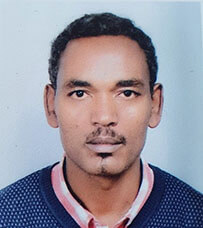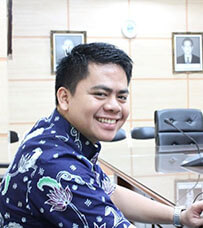Postgraduate Student Focus
The following students are conducting postgraduate or advanced undergraduate studies in Agribusiness at UNE.
Sarah Rohr

Sarah Rohr is in her final year of her PhD as an off-campus student at UNE and currently resides in the US. Her thesis looks into the value chain impacts of food loss and waste in Australian apples. This includes the application of modelling the market, the shifts that occur when loss or waste is reduced and what the economic outcomes are for both consumers and producers. As food loss and waste is an increasingly important area of sustainability, understanding how the value chain participants are affected is imperative in developing initiatives to address food loss and waste management.
Prior to commencing her PhD Sarah completed her Bachelor of Agricultural and Resource Economics at UNE as an off-campus student. Her Honours thesis looked into the externalities resulting from the Australian pork value chain, the impacts of changing emissions and the impacts throughout the value chain.
Recent articles:
- The Australian Apple Industry – Trends and Challenges (Australasian Agribusiness Review, 2020, Volume 28, Paper 2)
- A Diagrammatic Framework for Accounting for Externalities in Agriculture and Food Sector Value Chains (Australasian Agribusiness Review, 2020, Volume 28, Paper 5)
Lan Thi Vu

Lan Thi Vu is currently a PhD student at University of New England. Her research focus is examining farmers’ decision making in participating in contract farming and farmer cooperative of Vietnam coffee value chain, using an Agent Based Model.
Lan graduated a Master of International and Development of Economics at the Australian National University (ANU) with distinction and got award for outstanding student who achieved the highest performance in study at Crawford School, ANU. Before moving to Australia, Lan worked as a researcher at the Center for Agricultural Policy (CAP) - Institute of Policy and Strategy for Agricultural and Rural Development (IPSARD), Vietnam. Her works were focus on evaluating the performance of Vietnam’s Agricultural and Rural development policies, farmer livelihood and agricultural markets.
Lan’s research interest is behavioral economics, focus on quantitative analyzing and modeling agricultural policies, value chain stakeholders’ behaviors and farmer livelihood.
Daniel Hill

Daniel is a PhD candidate in the University of New England Centre of Agribusiness. Daniel’s research explores smallholder inclusion in high quality, export orientated value chains such as coffee and cocoa, and why value chain upgrading efforts typically favour the elite in the community. By using principal agent theory and applied econometrics, Daniel’s research explores how value chain design can contribute to pro-poor development outcomes by enabling poorer and more marginalised households to benefit from high quality export markets.
Prior to starting his PhD, Daniel worked as an economic consultant, specialising in drought response, river management, water infrastructure and public policy. Daniel graduated with an honour’s degree in economics from the University of Adelaide in 2018.
Wole Kinati Wakjira

Wole is a PhD student in UNE’s School of Psychology. The title of his thesis reads ‘Understanding Dimensions of Women’s Empowerment in the Livestock Value Chain Development Program in Ethiopia’. The focus is to understand the gendered contextual conditions in which women’s empowerment takes place and explores the contextual understandings of individual and collective agency, and the associations between them taking the program being implemented by ICARDA/ILRI as case study.
His research is based on datasets accessed from ICARDA-Ethiopia office. Data collection employed mix of qualitative and quantitative methods which include focus group discussions (FGDs), key informant interviews (KIIs) and household surveys. Qualitative information was first collected through the qualitative data collection methods followed by quantitative data collected through a cross sectional study based on structured interviews”.
Before joining UNE as HDR student, for more than five years, Wole was working as Gender Specialist for ICARDA (The International Centre for Agricultural Research in the Dry Areas), Addis Ababa office, Ethiopia. He also worked for Haramaya University, National Research Institute and Non-Governmental Organizations such as CARE Ethiopia and Lay Volunteers International Association (LVIA) at various capacities.
His first article, part of his thesis research, was presented on UNE Postgraduate Conference - Day 1 - University of New England (UNE) and can be located under ‘Stream six’.
Zenal Asikin

Zenal is PhD (Innovation) candidate at the UNE Center for Agribusiness, UNE Business School, under the supervision of Prof Derek Baker, Prof Rene Villano, Dr. Arief Daryanto and Ir Yudi Guntara Noor, SPt, IPU (Industry representative). His research interests are in the agricultural value chain, farm management, and innovation and technology uptake in primary industries. He received Bachelors and Masters degrees in agricultural economics from IPB University, Indonesia, where he is also currently working as lecturer at School of Business.
His PhD research focuses on business models for innovative smallholder beef systems in Indonesia to identify innovation-based mechanisms for engaging beef smallholders and developing their operations within the broader Indonesian beef industry. This research aims to produce a positive impact on the livelihoods of smallholder beef farmers through innovation interventions that help overcome constraints to economic progress. His PhD is funded by UNE PIPARA Scholarship, and field survey was supported by the ACIAR - UNE IndoBeef Project.
The journey of his PhD (Innovation) as context-based research resulted in four strategic outcomes. First, observation innovation at farm level by small farmers cattle producers. Second, these innovations have been used to identify business models. Third, business models are considerable to increase progress to achieve the objectives of national policy, including the promotion of market-oriented farming, the promotion of innovation and the improvement of the organization and livestock integration. Fourth, the behaviour of interested parties when promoting innovation will (a) helps establish the business models by overcoming constraints, and (b) make the business models more productive by boosting adoption.
Researcher IDs:
- Orchid ID - 0000-0003-2213-6067
- Scopus ID - 57218845384
- SINTA ID - 6705036
- ResearchGate - https://www.researchgate.net/profile/Zenal-Asikin

